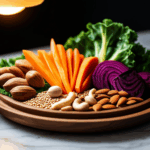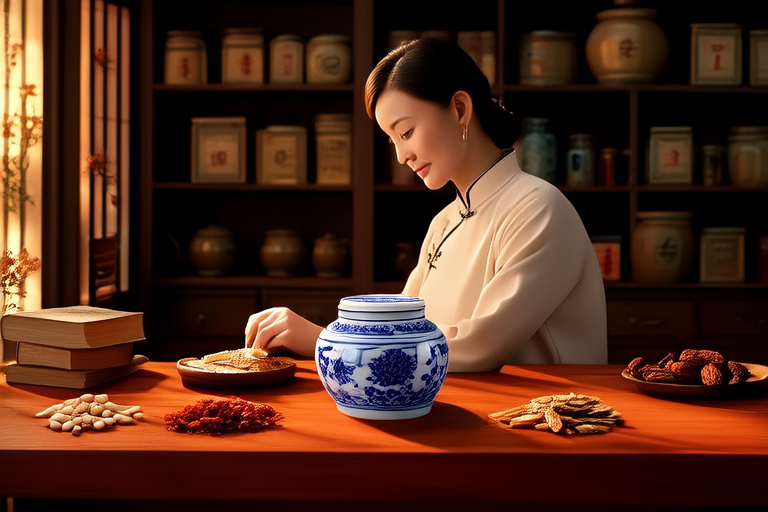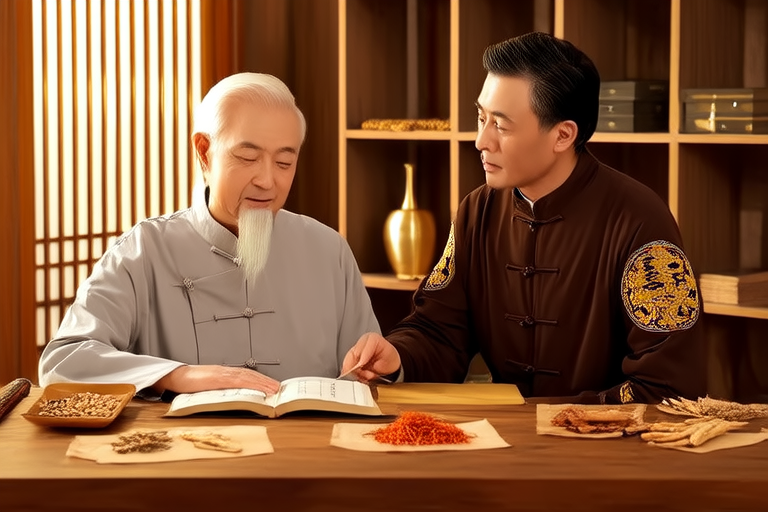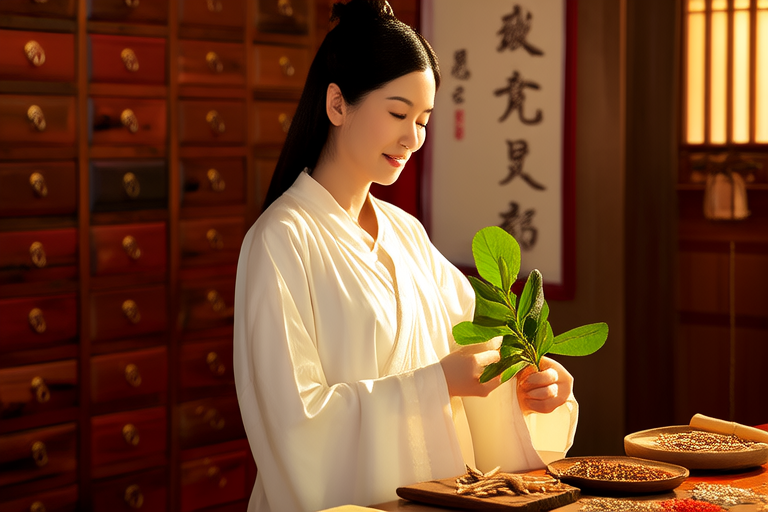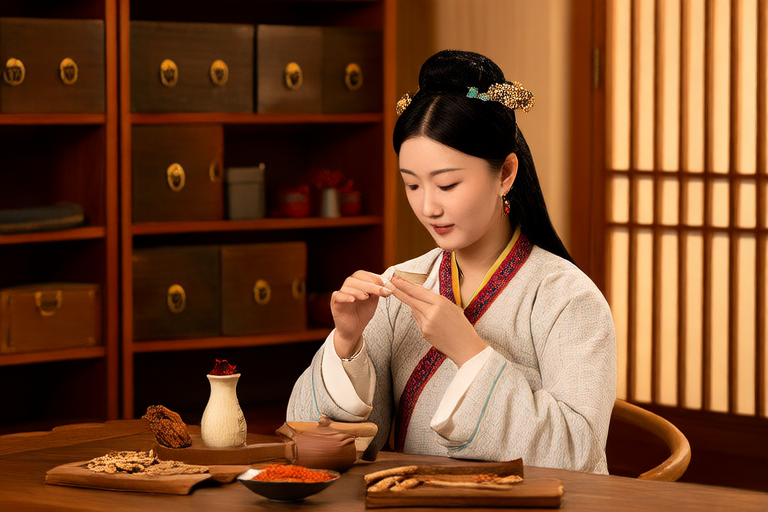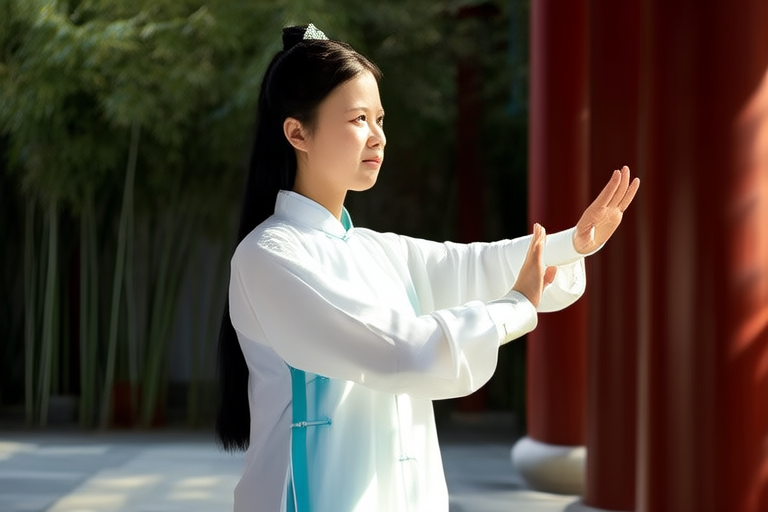Exploring Traditional Chinese Medicine’s Wellness Philosophy
Traditional Chinese Medicine (TCM) has been practiced for thousands of years and is deeply rooted in the belief that health and illness are influenced by the balance of qi (vital energy) within the body. This article will delve into the core principles and methods of TCM wellness, including its basic concepts such as yin-yang balance and the five elements theory, their applications in daily health maintenance, and practical advice on how to incorporate these practices into modern life.
The Basic Concepts of TCM Wellness
The foundation of TCM wellness lies in two primary concepts: yin-yang balance and the five elements theory. Yin and yang represent opposing yet complementary forces in nature, symbolizing the duality inherent in all things. Yin is associated with darkness, passivity, and coldness, while yang represents light, activity, and warmth. When these forces are in harmony, optimal health prevails; imbalance leads to disease. The five elements—wood, fire, earth, metal, and water—each correspond to different aspects of the human body and mind, influencing physical and emotional well-being.
The five elements theory posits that everything in the universe is interconnected through cycles of generation and control. For instance, wood generates fire, which nourishes earth, which produces metal, which creates water, which supports wood. Understanding these relationships helps practitioners diagnose imbalances and recommend appropriate treatments or lifestyle adjustments.
Common TCM Wellness Methods
Several key methods are commonly used in TCM to promote wellness:
- Food Therapy (Shi Zhi): Food therapy involves selecting specific foods based on their energetic properties to restore balance. For example, cooling foods like cucumber and watermelon can counteract heat-related symptoms, whereas warming foods such as ginger and cinnamon may help alleviate cold conditions.
- Acupuncture (Zhen Jiu): Acupuncture involves inserting thin needles at strategic points along meridians (energy pathways) to stimulate qi flow and correct imbalances. It is often used to treat pain, stress, digestive issues, and other ailments.
- Moxibustion (Ai Yao): Moxibustion uses burning mugwort herbs near acupoints to warm the meridians and dispel cold. This technique promotes circulation and strengthens the immune system.
- Massage (Tui Na): Tui na massage employs various techniques to manipulate muscles, joints, and soft tissues, enhancing blood circulation and releasing tension. It is particularly effective for musculoskeletal problems.
- Qigong (Chi Kung): Qigong combines slow movements, deep breathing exercises, and meditation to cultivate and regulate qi. Regular practice improves mental clarity, reduces stress, and enhances overall vitality.
Promoting Health Through TCM Methods
These TCM methods work synergistically to support both physical and mental health. By addressing underlying imbalances rather than merely treating symptoms, they foster long-term well-being. For instance, food therapy provides essential nutrients while correcting energetic deficiencies, acupuncture encourages self-healing mechanisms, and qigong cultivates inner peace and resilience.
To illustrate, consider someone experiencing chronic fatigue due to prolonged stress. Incorporating regular qigong sessions could help manage anxiety levels and improve sleep quality. Simultaneously, incorporating more warming foods into their diet might boost energy levels naturally. Additionally, periodic acupuncture treatments might alleviate muscle tension and enhance relaxation.
Practical Advice for Implementing TCM Wellness
Integrating TCM wellness into everyday routines requires mindfulness and consistency. Start by identifying areas where you feel out of balance—whether it be digestion, sleep patterns, or emotional stability—and explore corresponding TCM approaches. Consult qualified professionals who can provide personalized guidance tailored to your unique constitution.
For example, if you struggle with insomnia, try incorporating calming herbs like chamomile or valerian root into your evening routine. Practice gentle stretching exercises before bed to relax tense muscles. Establish a consistent sleep schedule and create a restful environment conducive to restful slumber.
Similarly, if digestive discomfort plagues you, focus on eating smaller meals throughout the day instead of large ones. Include easily digestible foods rich in fiber and probiotics, such as steamed vegetables and fermented dairy products. Consider taking short walks after meals to aid digestion.
Personalized TCM Wellness Plans
One of the strengths of TCM is its ability to tailor recommendations according to individual needs. Practitioners assess each patient’s constitutional type—such as yang deficiency or liver stagnation—to develop targeted strategies addressing specific weaknesses.
For instance, individuals prone to cold extremities might benefit from adding more warming spices to their diets and engaging in activities that promote blood circulation, such as brisk walking or swimming. Conversely, those with excessive internal heat might need cooling measures like consuming cooling teas or spending time in cool environments.
Incorporating TCM Wisdom Into Modern Life
Despite rapid technological advancements, many people still seek holistic approaches to maintain good health. Integrating TCM wisdom into daily life can enhance overall wellness without requiring drastic changes.
Begin by adopting simple habits promoting harmony between body and mind. Prioritize regular physical activity suited to your fitness level, whether it be yoga, tai chi, or brisk walking. Maintain a balanced diet emphasizing whole grains, lean proteins, fruits, and vegetables. Cultivate mindfulness through meditation or journaling to reduce stress and improve mental clarity.
Consider integrating seasonal variations into your routine. During spring, emphasize detoxifying practices like saunas or steam baths. In summer, focus on cooling foods and beverages. Autumn brings opportunities for grounding activities like hiking or gardening. Winter invites reflection and restorative practices like hot baths or reading.
Conclusion
Traditional Chinese Medicine offers profound insights into maintaining optimal health through balancing internal energies. By understanding fundamental concepts like yin-yang and the five elements theories, one can better appreciate the interconnectedness of mind, body, and spirit. Applying practical TCM methods consistently yields significant benefits over time. Personalized plans ensure effectiveness while accommodating individual differences. Ultimately, embracing TCM wisdom enriches modern lifestyles, fostering vibrant, sustainable well-being.



